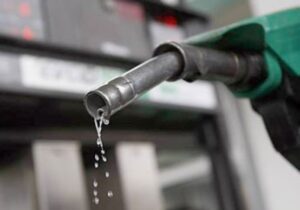Fuel Importers Lower Petrol Prices, Challenge Dangote’s Refinery
Fuel Importers Lower Petrol Prices, Challenge Dangote’s Refinery

The Nigerian fuel market is witnessing intense price competition as independent importers begin selling petrol at lower prices than the Dangote Petroleum Refinery, sparking a heated debate over the future of fuel imports.
According to reports, several petrol stations in Lagos and Ogun States have begun selling fuel for less than ₦860 per litre — lower than the prices offered by Dangote refinery-affiliated marketers like MRS and Heyden, which sell at ₦865–₦875 per litre.
For instance, a station in Ogun State, SGR, was seen dispensing fuel at ₦847 as of Tuesday, while importers reportedly reduced ex-depot prices to ₦815 per litre, slightly below Dangote’s ₦820 and NNPC’s ₦825, based on data from Petroleumprice.ng.
Competitive Pricing Heats Up
Petroleum marketers say these price cuts are part of a strategy by importers to stay competitive in a market increasingly dominated by domestic refining. Many of these businesses previously raised concerns over losses following Dangote Refinery’s price drops earlier in the year.
Confirming the ongoing pricing shifts, Chinedu Ukadike, National Publicity Secretary of the Independent Petroleum Marketers Association of Nigeria (IPMAN), said:
> “Depot owners have adjusted prices. Some are selling at ₦815 or ₦817. Dangote is at ₦820, while NNPC hasn’t made any downward revision yet.”
He defended the ongoing competition, stating that this is how a liberalised market should function.
> “This is why we support an open market. The President should resist any calls to ban fuel importation. Local refining and fair competition will naturally regulate prices,” Ukadike explained.
Dangote Demands Protection for Local Refiners
However, Aliko Dangote, President of Dangote Group, holds a different view. Speaking at an event organized by the Nigerian Upstream Petroleum Regulatory Commission (NUPRC) in Abuja, he called on the Federal Government to ban fuel imports to protect domestic refiners.
Dangote warned that the influx of imported products — many of them subsidised or of questionable quality — is undermining local refining efforts. He claimed some imported fuels are “toxic” and would not meet standards in Europe or North America.
> “Cheap, often substandard fuel is being dumped in the Nigerian market. This distorts pricing and threatens the viability of local refineries,” he said.
Dangote argued that some importers are exploiting discounted Russian crude or petroleum products, which are making their way to African markets, creating unfair competition. He urged African governments to adopt protective trade measures, similar to those used in the U.S., Canada, and the EU, to shield local industries.
> “We must apply the ‘Nigeria First’ policy to the petroleum sector, just like in other areas. If we don’t act now, local refining will collapse under unfair foreign competition,” he added.
Marketers Push Back
Despite Dangote’s position, many marketers argue that banning fuel imports would reduce competition and hurt consumers by limiting access to affordable petrol. They urged the government to allow market forces to determine pricing and supply.
> “Rather than ban imports, focus on quality control and let local and foreign suppliers compete fairly,” one marketer said.
The debate underscores the challenges Nigeria faces in balancing local industrial development with consumer affordability in a newly deregulated fuel market.
TRENDING SONGS
 Shock in Anambra: Bride Disappears Moments Before Wedding
Shock in Anambra: Bride Disappears Moments Before Wedding
 Nigerian Woman Returns ₦330 Million Accidentally Credited to Her Account
Nigerian Woman Returns ₦330 Million Accidentally Credited to Her Account
 APC Don Reach Morocco?’ VeryDarkMan Reacts to Seyi Tinubu Poster
APC Don Reach Morocco?’ VeryDarkMan Reacts to Seyi Tinubu Poster
 Bride Breaks Down in Tears as Wedding Meals Were Kept Secretly While Guests Go Home Hungry
Bride Breaks Down in Tears as Wedding Meals Were Kept Secretly While Guests Go Home Hungry
 Odogwu by Day, Robber by Night: How Marriage Joy Turned Into Tragedy
Odogwu by Day, Robber by Night: How Marriage Joy Turned Into Tragedy
 Nigerian Officials Allegedly Pocket N4–6B Weekly Through Smuggling Cartels at Seme–Badagry Border
Nigerian Officials Allegedly Pocket N4–6B Weekly Through Smuggling Cartels at Seme–Badagry Border
 Ahmad Yerima: Naval Officer to Face No Sanctions After Clash with Wike – Matawalle
Ahmad Yerima: Naval Officer to Face No Sanctions After Clash with Wike – Matawalle
 Trending Video: Muslim Man Joins Wife in Hallelujah Challenge ‘Dress Like Your Miracle’ Night
Trending Video: Muslim Man Joins Wife in Hallelujah Challenge ‘Dress Like Your Miracle’ Night
 Woman Seeks Advice as Late Brother’s Wife Refuses to Mourn Him Following His Death With Alleged Mistress
Woman Seeks Advice as Late Brother’s Wife Refuses to Mourn Him Following His Death With Alleged Mistress
 Nobody Cares About Fine Girls In The UK, I Miss Nigeria — Nigerian Lady Laments
Nobody Cares About Fine Girls In The UK, I Miss Nigeria — Nigerian Lady Laments
Share this post with your friends on ![]()













